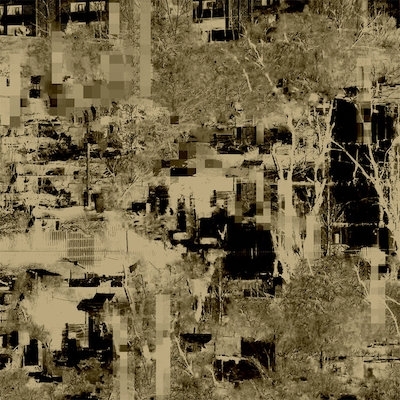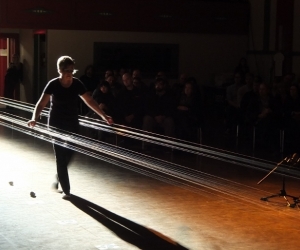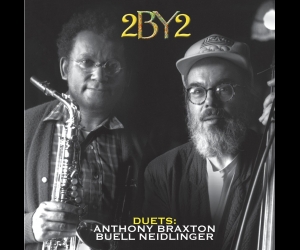
Endlings is the duo of John Dieterich—best known as a guitarist for the bent-rock outfit Deerhoof—and composer, artist, and performer Raven Chacon. Much of their new album Human Form feels damaged and sweet in equal measure, its peculiar sonics tumbling all over you like an upturned bushel of bruised fruit.
From a listener’s standpoint, the music is glimpsed through a constantly shifting topography of crusted-over surfaces. There’s an ever-present conventional—even playful—musicality buried somewhere in the mix, but its outer skin is scabby and disfigured.
This interplay between musicality and brokenness is one of the duo’s most intriguing features. And while their music has a pervasive mutilated quality, it doesn’t dwell on the aggressive potential of this soundworld. Instead, the record slithers giddily from one counterintuitive decision to the next, all the while betraying an absurdist sense of humour.
Each track is its own motley assortment of elements. A stray melodic chunk dangles precariously off some sputtering groove; indistinct piano fragments clank like malformed wind-chimes; multiple drones ooze together to form a soup of cosmic muttering; a boisterous fit of no-wave scrape-and-bustle erupts. On the krautrockish “Indicator” they even briefly sound like a band, thanks to the propulsive drums of guest Marshall Trammell. The following track, “The Universe Cannot Be Read,” begins with some of the most naked sounds of the whole record—a harebrained key-mashing romp across a piano. The longest piece, “Save and Hold Fantasy Threats,” is also the most menacing, sticking a curdled squeal and strobing percussive skitter atop a swelling bass tone. Meanwhile, the expansive “Primordial Forms” provides the perfect closer for this bizarre assemblage; its broader formal scope seems to almost paraphrase the rest of the album, albeit in a totally different and more fluid language.
For all its vertiginous variation and bleary-eyed noisiness, Human Form manages a surprising degree of cohesion. It’s a sticky, downright noisy mess, yet it taps into instinctive abandon—the same one that possesses children to get absolutely filthy while playing.


